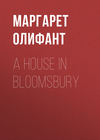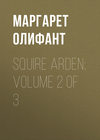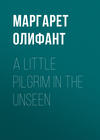Buch lesen: «Phoebe, Junior», Seite 25
“I think there is a great deal to be said in favour of Euthanasia,” said Phœbe, quietly stepping into the conversation; “but then it would have to be with the consent of the victims. When any one found himself useless, unnecessary to the world, or unhappy in it – ”
“Humbug and nonsense,” said Mr. Copperhead. “A likely thing for anybody to do. No, it is not a question for law-making. Let 'em die out naturally, that's my opinion. Don't do anything to hurry 'em – that is, I don't see my way to it; but let 'em go quiet, and don't bring 'em cordials and feather-beds, and all that middyeval nonsense, to keep 'em going as long as possible. It's wicked, that's what it is.”
“At all events,” said Mr. May, who, poor man, was bent on pleasing, “it is refreshing to hear opinions so bold and original. Something new is always a blessing. I cannot say I agree with you – ”
“No parson would be bold enough for that. Christianity's been a capital thing for the world,” said Mr. Copperhead, “I don't say a word against it; but in these go-ahead days, sir, we've had enough of it, that's to say when it's carried too far. All this fuss about the poor, all the row about dragging up a lot of poor little beggars to live that had far better die, and your almshouses to keep the old ones going, past all nature! Shovel the mould over them, that's the thing for the world; let 'em die when they ought to die; and let them live who can live – that's my way of thinking – and what's more, I'm right.”
“What a fine thing for you, Mr. Clarence,” cried Phœbe, “who are going into Parliament! to take up your father's idea and work it out. What a speech you could make on the subject! I saw a hospital once in Paris that would make such a wonderful illustration. I'll tell you about it if you like. Poor old wretched people whose life was nothing but wretchedness kept going, kept living for years and years – why, no one could tell; for I am sure it would have been better, far better for them to die and be done with it. What a speech you might make when you bring a bill into Parliament to abolish almshouses and all sorts of charities!” she added with a laugh, turning from Clarence, at whom she had been looking, to his father, who was puzzled, and did not know how to understand the young woman's eyes.
“I'll never make much of a speech in Parliament,” said Clarence; “unless you make it for me,” he added in an undertone. But no one else was speaking, and the undertone was quite audible. Meanwhile Phœbe had not ceased to look at his father, and held him with a pair of eyes not like the Ancient Mariner's. Mr. Copperhead was confused, his power even of insolence was cowed for the moment. He obeyed quite docilely the movement made to leave the table. Was it possible that she defied him, this Minister's daughter, and measured her strength against his? Mr. Copperhead felt as if he could have shaken the impertinent girl, but dared not, being where he was.
And lunch being over, Mr. May led his pupil's father into his study. “I want to show you what your boy has been doing,” he said, pointing to a line of books which made the millionnaire's soul shrink within him. “I have not bothered him with classics; what was the use as he is not going back to Oxford? but I have done my best for him in a practical way. He has read history, largely as you see, and as much as I could give him of political and constitutional – ”
“Yes, yes,” said Mr. Copperhead, reading the titles of some of the books under his breath. They impressed him deeply, and took away for a moment his self-confidence. It was his habit to boast that he knew nothing about books; but in their presence he shrank, feeling that they were greater than he, which was, there is little doubt, a sign of grace.
“If you wish to remove Clarence,” said Mr. May, “perhaps I had better make out a scheme of reading for him.”
“Look here,” cried the rich man, “I didn't want to remove him; but there he is, the first I see of him, cheek for jowl with a good-looking girl. I don't mean to say a word against Miss May, I've no doubt she's charming; but anyhow there she is side by side with Clar, who is no more able to resist that sort of thing – ”
Mr. May laughed, and this time with unmitigated amusement. “Do you mean Ursula? I think I can answer for it that she made no attempts upon him for which resistance would be necessary.”
“That's all very well to say; but bless you they do it, every one,” said Mr. Copperhead, “without exception, when a young fellow's well off and well-looking; and as if one wasn't bad enough, you've got Phœbe Beecham. You won't tell me she doesn't mean anything? – up to any mischief, a real minister's daughter. I don't mean anything uncivil to you or yours. I suppose a parson's different; but we know what a minister's daughter is in our connection. Like the men themselves, in short, who are always pouncing on some girl with a fortune if her relations don't take care. And Clarence is as weak as a baby; he takes after his mother – a poor bit of a feeble creature, though he's like me in exterior. That's how it is, you perceive; I don't quite see my way to letting him go on.”
“That is of course precisely as you please,” said Mr. May, somewhat sharply. He would preserve his dignity even though his heart was sinking; but he could not keep that tone of sharpness out of his voice.
“Of course it is as I please. I'll pay up of course for the second three months, if you choose, fair and square. I meant him to stay, and I'll pay. But that's all. You've no further claim upon me that I know of; and I must say that for a tutor, a regular coach, to keep girls in his house, daughters, or whatever you choose to call them, is something monstrous. It's a thing no fellow's friends would put up with. It's what I call dishonourable.”
“Perhaps,” said Mr. May, with all the self-possession he was master of, “you will let your son know at once that he must pack and go. I dare say, Sir Robert can take him, and we will send the portmanteaux. In such a case, it is better there should not be a moment's delay.”
“Clarence!” cried Mr. Copperhead, walking to the door and opening it. “Come along, look sharp, you're to go. I'll take you with me, do you hear? And May will see to sending you your boxes. Quick, come along, there's no time to lose.”
“Go!” said Clarence, coming in startled, with his eyebrows rising almost into his hair. “Go? What do you mean? Out of the Parsonage? The Governor's been having too much sherry,” he said, coming close to Mr. May's arm; he had himself been taking too much of the sherry, for the good reason that nobody had taken any notice of what he did, and that he had foreseen the excitement that was coming. “You don't mean it, I know,” he added aloud; “I'll go over for the night if Sir Robert will have me, and see my mother – ”
“Ask May,” said Mr. Copperhead, “you'll believe him, I suppose; he's as glad to get rid of you as I am to take you away.”
“Is this true?” cried Clarence, roused and wondering, “and if so, what's happened? I ain't a baby, you know, to be bundled about from one to another. The Governor forgets that.”
“Your father,” said Mr. May, “chooses to remove you, and that is all I choose to say.”
“But, by George, I can say a deal more,” said Mr. Copperhead. “You simpleton, do you think I am going to leave you here where there's man-traps about? None of such nonsense for me. Put your things together, I tell you. Phœbe Beecham's bad enough at home; but if she thinks she's to have you here to pluck at her leisure, she and her friends – ”
“W – hew!” said Clarence, with a long whistle. “So that's it. I am very sorry, father, if these are your sentiments; but I may as well tell you at once I shan't go.”
“You – must go.”
“No,” he said, squaring his shoulders and putting out his shirt front; he had never been roused into rebellion before, and perhaps without these extra glasses of sherry he would not have had the courage now. But what with sherry, and what with amour propre, and what with the thing he called love, Clarence Copperhead mounted all at once upon a pedestal. He had a certain dogged obstinacy in him, suspected by nobody but his mother, who had little enough to say in the guidance of her boy. He set himself square like a pugilist, which was his notion of resistance. Mr. May looked on with a curious mixture of feelings. His own sudden and foolish hope was over, and what did it matter to him whether the detestable father or the coarse son should win? He turned away from them with contempt, which was made sharp by their utter uselessness to himself. Had it been possible that he might have what he wanted from Mr. Copperhead, his patience would have held out against any trial; but the moment that hope was over, what further interest had he in the question? He went to his writing-table and sat down there, leaving them to fight it out as they would, by themselves. It was no affair of his.
CHAPTER XXXVII
A PLEASANT EVENING
The result, however, was a compromise. Clarence Copperhead went off with his father and Sir Robert to the Hall for the night, but was to return next day, and Phœbe was left in a condition of some excitement behind them, not quite knowing what to think. She was as sure as ever that he had made up his mind to propose; but he had not done it, and what effect his father's visit, and perhaps his mother's entreaties, might have upon him, Phœbe could not tell. The crisis excited her beyond any excitement which she would have thought possible in respect to Clarence Copperhead. She was more like an applicant for office kept uncertain whether she was to have a desirable post or not, than a girl on the eve of a lover's declaration. This was her own conception of the circumstances. She did not dislike Clarence; quite the reverse. She had no sympathy with Ursula's impatience of his heavy vanity. Phœbe had been used to him all her life, and had never thought badly of the heavy boy whom she had been invited to amuse when she was six years old, and whom she had no particular objection to amuse still, let the others wonder at her as they might. Poor Reginald, contemplating bitterly her many little complacencies to his rival, set them down hastily to an appreciation of that rival's worldly advantages, which was not quite a just sentence. It was true, and yet it was not true; other feelings mingled in Phœbe's worldliness. She did, indeed, perceive and esteem highly the advantages which Clarence could give her; but she had not the objections to Clarence himself that the others had. She was willing, quite willing, to undertake the charge of him, to manage, and guide, and make a man of him. And yet, while it was not pure worldliness, much less was it actual love which moved her. It was a kind of habitual affection, as for the “poor thing, but mine own, sir,” of the jester. He was but a poor creature, but Phœbe knew she could make something of him, and she had no distaste to the task. When she began to perceive that Reginald, in so many ways Clarence's superior, was at her disposal, a sense of gratification went through Phœbe's mind, and it certainly occurred to her that the feeling he might inspire would be a warmer and a more delightful one than that which would fall to Clarence Copperhead; but she was not tempted thereby to throw Clarence off for the other. No, she was pleased, and not unwilling to expend a little tender regret and gratitude upon poor Reginald. She was ready to be “kind” to him, though every woman knows that is the last thing she ought to be to a rejected lover; and she was full of sympathy for the disappointment which, nevertheless, she fully intended was to be his lot. This seems paradoxical, but it is no more paradoxical than human creatures generally are. On this particular evening her heart beat very high on account of Clarence, to know if he would have strength of mind to hold his own against his father, and if he would come back to her and ask her, as she felt certain he meant to do, that one momentous question. Her heart would not have been broken had he not done so, but still she would have been disappointed. Notwithstanding when the evening came, the absence of Clarence was a relief to Phœbe as well as to the rest of the party, and she gave herself up to the pleasures of a few hours of half-tender intercourse with Reginald, with a sense of enjoyment such as she seldom felt. This was very wrong, there is no denying it, but still so it was. She was anxious that Clarence should come back to her, and ask her to be his wife; and yet she was pleased to be rid of Clarence, and to give her whole attention and sympathy to Reginald, trying her best to please him. It was very wrong; and yet such things have happened before, and will again; and are as natural, perhaps, as the more absolute and unwavering passion which has no doubt of its object, passion like Northcote's, who had neither eyes nor ears for anything but Ursula. The four were alone together that evening, and enjoyed it thoroughly. Clarence was away, who, to all but Phœbe, was an interruption of their intercourse; and Mr. May was away in his study, too much absorbed to think of any duties that ought to have devolved upon him as chaperon; and even Janey was out of the way, taking tea with Mrs. Hurst. So the two young pairs sat round the table and talked; the girls, with a mutual panic, which neither breathed to the other, keeping together, avoiding separation into pairs. Ursula out of very shyness and fright alone, lest another chapter of the strange, novel, too moving love-tale might be poured into her ears; but Phœbe with more settled purpose, to prevent any disclosure on the part of Reginald. The evening was mixed up of pleasure and pain to the two young men, each eager to find himself alone with the girl whom he loved; but it is to be feared the girls themselves had a furtive guilty enjoyment of it, which they ought not to have had. Open and outrageous love-making is not half so delicate a pastime as that in which nothing distinct dare be said, but all is implication, conveyed and understood without words. I know it is a dangerous thing to confess, but veracity requires the confession; you may say it was the playing of the cat with the mouse, if you wish to give a disagreeable version of it; but, however you choose to explain it, this was how it was.
It was with fear and trembling at last that Phœbe went to the piano, which was at the other end of the room, after making all the resistance which was possible.
“Thank Heaven, that idiot and his fiddle aren't here to-night to interfere!” cried Reginald.
Phœbe shook her head at him, but ventured on no words; and how she did exert herself on the piano, playing things which were a great deal too classical for Reginald, who would have preferred the simplest stock piece, under cover of which he might have talked to her hanging over her chair, and making belief to turn over the music! This was what he wanted, poor fellow. He had no heart nor ears for Beethoven, which Phœbe played to him with a tremor in her heart, and yet, the wicked little witch, with some enjoyment too.
“This is not the sort of thing you play when Copperhead is here,” he said at last, driven to resistance.
“Oh, we play Mendelssohn,” said Phœbe, with much show of innocence; and then she added, “You ought to feel the compliment if I play Beethoven to you.”
“So I ought, I suppose,” said Reginald. “The truth is, I don't care for music. Don't take your hands off the keys.”
“Why, you have done nothing but worry me to play!”
“Not for the music,” said Reginald, quite satisfied to have got his will. “Why will you not talk to me and play to me, as I wish?”
“Perhaps, if I knew what you wish – ” Phœbe said, in spite of herself.
“Oh, how I should like to tell you! No, not Beethoven; a little, just a little music. Heavens!” cried Reginald, as she crashed into a fortissimo, “another sonata! Listen, I am not equal to sonatas. Nay, Miss Beecham, play me a little nothing – talk to me.”
She shook her head at him with a laugh, and went on playing the hardest piece of music she could think of, complicating herself in difficult chords and sudden accidentals. If there had been anybody there to hear who could have understood, Phœbe's performance would, no doubt, have appeared a masterpiece of brilliant execution, as it was; but the two others were paying not the slightest attention, and as for Reginald, he was in a state of tantalized vexation, which half-amused himself, and filled the performer with an exhilarating sense of successful mischief. Northcote was trying to say – what was he not trying to say? – to Ursula, under cover of the music, which was the best shield he could have had; and perhaps in reality, though Reginald was tantalized to the utmost degree of tantalization, even he had a certain enjoyment in the saucy self-defence which was more mischievous than cruel. He stood behind Phœbe's chair, now and then meeting her laughing glance with one of tender appeal and reproach, pleased to feel himself thus isolated with her, and held an arm's-length in so genial a way. He would have his opportunity after a while, when there would be no piano to give her a momentary refuge, and then he would say out all that was in his heart, with no possible shadow of a rival to interfere with him. Angry? no; as he stood behind her, watching her fingers fly over the keys, a delightful calm stole over Reginald. Now and then she would throw a half-mocking glance at him upward over her shoulder, as she swept over the resounding board. When the sonata was concluded, Phœbe sprang up from the piano, and went back to the table. She proposed that they should play a game at cards, to which Ursula agreed. The young men shrugged their shoulders and protested; but, after all, what did it matter, so long as they were together? They fell into their places quite naturally, the very cards assisting; and so the moments flew by. There was not so much sound as usual in the old faded drawing-room, which had come to look so bright and homelike; not so much sound of voices, perhaps less laughter – yet of all the evenings they had spent there together, that was the one they looked back upon, all four, with most tender recollection. They had been so happy, or, if not happy, so near (apparently) to happiness, which is better sometimes than happiness itself.
“Don't let Reginald come with me,” Phœbe whispered, as she kissed her friend, and said good night, “or ask Mr. Northcote to come too.”
“Why?” said Ursula, with dreamy eyes; her own young tide of life was rising, invading, for the moment, her perceptions, and dulling her sense of what was going on round her. There was no time, however, for anything more to be said, for Reginald was close behind with his hat in his hand. Phœbe had to resign herself, and she knew what was coming. The only thing was, if possible, to stop the declaration on the way.
“This is the first chance I have had of seeing you home without that perpetual shadow of Copperhead – ”
“Ah, poor Clarence!” said Phœbe. “I wonder how he is getting on away from us all to-night.”
“Poor Clarence!” echoed Reginald aghast. “You don't mean to say that you – miss him, Miss Beecham? I never heard you speak of him in that tone before.”
“Miss him! no, perhaps not exactly,” said Phœbe, with a soft little sigh; “but still – I have known him all my life, Mr. May; when we were quite little I used to be sent for to his grand nursery, full of lovely toys and things – a great deal grander than mine.”
“And for that reason – ” said Reginald, becoming bitter, with a laugh.
“Nothing for that reason,” said Phœbe; “but I noticed it at six as I should at twenty. I must have been a horrid little worldly-minded thing, don't you think? So you see there are the associations of a great many years to make me say Poor Clarence, when anything is the matter with him.”
“He is lucky to rouse your sympathies so warmly,” cried Reginald, thoroughly wretched; “but I did not know there was anything the matter.”
“I think there will be if he has to leave our little society, where we have all been so happy,” said Phœbe, softly. “How little one thought, coming here a stranger, how pleasant it was to be! I especially, to whom coming to Carlingford was rather – perhaps I might say a humiliation. I am very fond of grandpapa and grandmamma now, but the first introduction was something of a shock – I have never denied it; and if it had not been for sweet kind Ursula and you – all.”
The little breathless fragmentary pause which Phœbe made between the you and the “all,” giving just a ghost of emphasis to the pronoun, sounded to poor Reginald in his foolishness almost like a caress. How cleverly it was managed, with just so much natural feeling in it as gave it reality! They were approaching No. 6, and Martha, the maid, already was visible at the open door.
“Then you do give me some share – some little share,” he cried, with a broken voice. “Ah, if you would only let me tell you what your coming has been to me. It has opened up my life; I feel everything different, the old earth itself; there is a new light upon the whole world – ”
“Hush, here is Martha!” cried Phœbe, “she will not understand about new lights. Yes, it has been pleasant, very pleasant; when one begins to sigh and realize how pleasant a thing has been, I always fear it is going to be broken up.”
“Absit omen!” cried Reginald, fervently, taking the hand she had put out to bid him good night, and holding it fast to detain her; and was there moisture in the eyes which she lifted to him, and which glistened, he thought, though there was only the distant light of a lamp to see them by?
“You must not keep me now,” cried Phœbe, “here is grandpapa coming. Good night, Mr. May, good night.”
Was Phœbe a mere coquette pure et simple? As soon as she had got safe within these walls, she stooped down over the primroses to get rid of Martha, and then in the darkness had a cry, all by herself, on one side of the wall, while the young lover, with his head full of her, checked, but not altogether discouraged, went slowly away on the other. She cried, and her heart contracted with a real pang. He was very tender in his reverential homage, very romantic, a true lover, not the kind of man who wants a wife or wants a clever companion to amuse him, and save him the expense of a coach, and be his to refer to in everything. That was an altogether different kind of thing. Phœbe went in with a sense in her mind that perhaps she had never touched so close upon a higher kind of existence, and perhaps never again might have the opportunity; but before she had crossed the garden, she had begun once more to question whether Clarence would have the fortitude to hold his own against everything that father or mother could do to change his mind. Would he have the fortitude? Would he come back to her, safe and determined, or would he yield to arguments in favour of some richer bride, and come back either estranged or at the least doubtful? This gave her a pang of profound anxiety at the bottom of her heart.




















